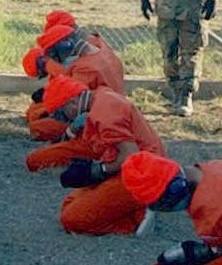Our Culpability 14 years, 7 months ago by Martey Dodoo
 I only read about Rochus Misch to verify that he had actually seen Hitler die in the Fuhrerbunker, so that various Boys from Brazil scenarios would finally die in my imagination.
I only read about Rochus Misch to verify that he had actually seen Hitler die in the Fuhrerbunker, so that various Boys from Brazil scenarios would finally die in my imagination.
But when I finished the article, I was angry. The last paragraph:
"I knew about Dachau camp and about concentration camps in general," he tells me. "But I had no idea of the scale. It wasn't part of our conversations. The Nuremberg Trial dealt with crimes committed by the Germans. But you must remember there was never a war when crimes weren't committed, and there never will be."
This quote suggests one of the following options:
- Rochus Misch was aware of internment camps for Jews and other prisoners, but nothing more.
- Rochus Misch was aware that Jews and others were being severely mistreated in Nazi Germany, but nothing more.
- Rochus Misch was aware that Jews and others were being killed in Nazi Germany, but not that 6 million of them died.
The problem is that all of these choices are unconscionable.
When I first read the Misch article, I thought of this webcomic from Subnormality, comparing the differences between Traudl Junge, one of Hitler's secretaries, and Sophie Scholl, one of the leaders of the White Rose, a group of college students executed for printing pamphlets advocating resistance against the Nazi regime. It portrays the difference between those who passively supported the Nazis and those who opposed them as clear-cut as the solid black line dividing the two halves of the page.
 As an American, living in this world of endless detention and secret prisons, it is difficult for me to be sure that I am on the right side of that line. While it is clear that the detainees at Guantánamo are not there to be exterminated, and neither the current nor former leaders of our nation are anything like Hitler, it is also not clear that all of our country's actions are consistent with my conscience.
As an American, living in this world of endless detention and secret prisons, it is difficult for me to be sure that I am on the right side of that line. While it is clear that the detainees at Guantánamo are not there to be exterminated, and neither the current nor former leaders of our nation are anything like Hitler, it is also not clear that all of our country's actions are consistent with my conscience.
Unlike Traudl Junge or the millions of other Germans who supported the Nazis in the 1930s and 1940s, I do not even have the excuse that dissidence would cause me to be killed or thrown in prison. Unlike someone living under an authoritarian regime, I cannot claim that any action I take will be ignored by the government. I am, along with 200 million other American citizens, at least partially to blame for this country's mistakes.
I am not saying that I think I should be indicted for war crimes, nor that terrorist attacks upon my person would be justified. I do think that we as a nation should be less reluctant to revisit our past mistakes in order to adequately confront them. We have not done this with Guantánamo, nor Abu Ghraib, nor Fallujah, nor Al-Mahmudiyah, nor the multitude of other incidents and atrocities that happen every single day but are never thrust into the public eye.